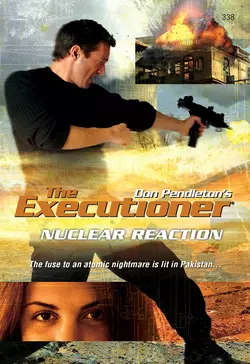Nuclear Reaction

Don Pendleton
Тип: электронная книга
Жанр: Книги о приключениях
Язык: на английском языке
Стоимость: 458.46 ₽
Статус: В продаже
Издательство: HarperCollins
Дата публикации: 16.04.2024
Отзывы: Пока нет Добавить отзыв
О книге: NECESSARY RISKSMack Bolan is searching for suitcase nukes in the treacherous backcountry of Pakistan. The deadly weapons are being developed by internal factions determined to vaporize neighboring India. It′s a suicide mission–one Bolan takes on with deadly determination.Aiding a group of dissidents committed to stopping a deeply rooted conspiracy that could lead to the annihilation of the Indian subcontinent, Bolan adjusts his angle of attack as a relentless enemy races ahead on their doomsday timetable. But in a part of the world where an international shouting match can turn into mutually assured destruction, all the Executioner needs is for his enemy to make one critical mistake.